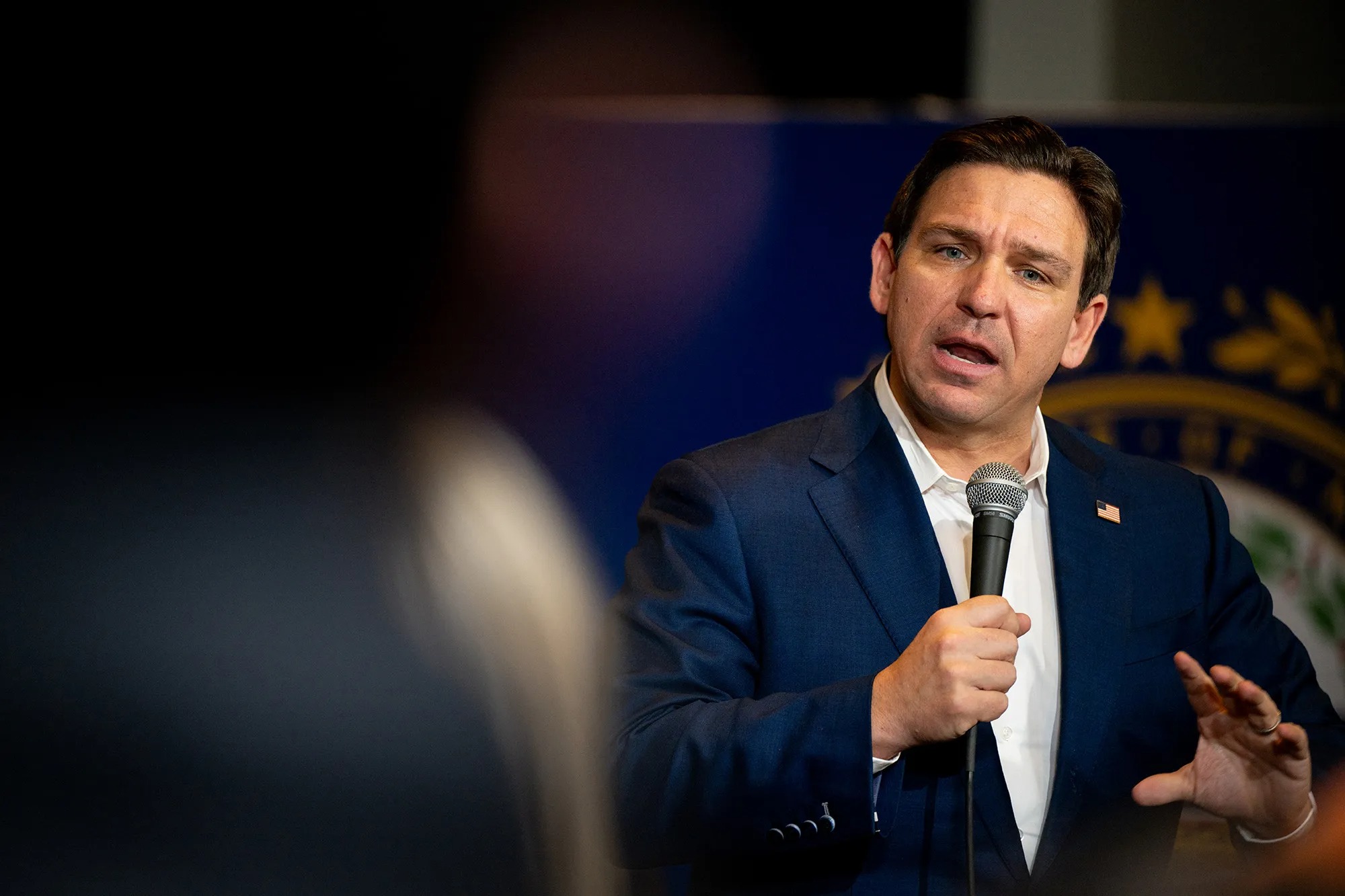Governor Ron DeSantis of Florida has garnered attention for his governance, particularly for implementing a series of policies that have sparked debate and controversy.
Among these measures are restrictions on the teaching of gender identity and sexual orientation in schools, the cessation of funding for diversity programs, impediments to transgender medical care, and laws that bar minors from participating in performances, with some arguing that these disproportionately affect drag shows.
DeSantis’s stance on these issues has elicited varying responses within the Republican Party. While a significant portion of Republicans agree with these policies and commend DeSantis for championing them, a distinct segment of the party maintains unwavering support for former President Donald Trump.

Despite DeSantis’s advocacy on issues such as gender identity and sexual orientation, a substantial number of Republican voters prioritize their loyalty to Trump, citing his handling of immigration issues and the economy as key factors.
For many Republicans, Trump’s approach to immigration policy and economic matters continues to resonate deeply. His stringent stance on immigration, including his efforts to bolster border security and curb illegal immigration, has garnered widespread support among his base.
Additionally, Trump’s emphasis on economic revitalization, characterized by tax cuts, deregulation, and job creation initiatives, has solidified his standing as a leader who prioritizes Americans’ economic well-being.
Although DeSantis’s advocacy on issues related to gender identity and sexual orientation may align with the beliefs of some Republicans, it appears insufficient to sway the allegiance of those who prioritize Trump’s policies and leadership.
This underscores Trump’s enduring influence within the Republican Party, as well as the complexities of intra-party dynamics and voter preferences.

DeSantis’s policies have not been without criticism, particularly from segments of the population who view them as discriminatory or regressive.
Critics argue that restrictions on the teaching of gender identity and sexual orientation in schools undermine efforts to promote inclusivity and diversity. At the same time, impediments to transgender medical care infringe upon individuals’ rights to access necessary healthcare services.
Similarly, laws targeting performances involving minors, such as drag shows, have been condemned as unfairly targeting specific communities and stifling artistic expression.
In light of these criticisms and the broader political landscape, DeSantis faces the challenge of balancing his pursuit of conservative policies with the need to appeal to a diverse electorate.
As he navigates these complexities, the question remains whether his approach will resonate sufficiently with voters beyond his core base of support.
The interplay between DeSantis’s policies, Republican loyalty to Trump, and the broader socio-political context will shape the trajectory of his political career and influence the dynamics of the Republican Party moving forward.


